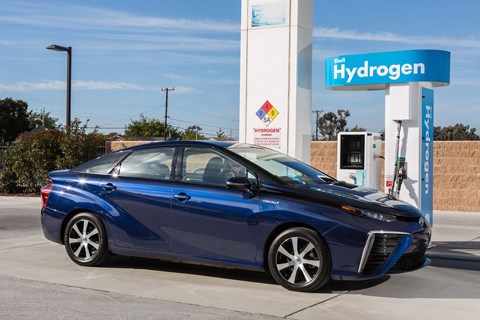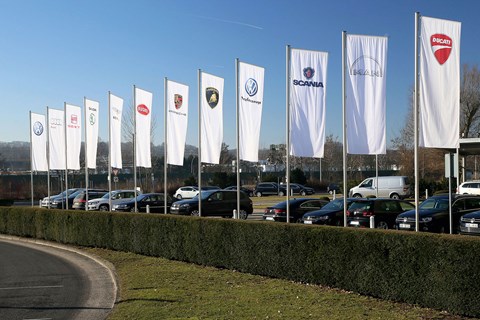► Motoring trends in the new decade
► Gavin Green on cars in the 2020s
► Do you agree with his crystal ball?
01 Electric cars will grow in popularity, of course. Our legislators demand it. But they will not sell as well as car makers and law makers hope, as they’re less convenient and cost more. So motorists will keep their old high-polluting petrol and diesel cars for longer.
02 The vast majority of new cars sold at the end of the 2020s will still have petrol engines, although many will be hybrids.
03 Forcing people to pay more for ‘clean’ EVs and restricting the urban movements of combustion-engine cars will cause unrest; look at the gilets jaunes protests in France.
04 Hydrogen fuel cells will be the long-term electric future, more than heavy plug-in batteries.

05 There will be many environmental and human rights scares about building and sourcing materials for electric car batteries. Expect a Panorama on child labour extracting cobalt in the Congo.
06 Plug-in hybrids will become much more popular, especially for big vehicles. They’re perfect for car makers to meet tough official CO2 targets and for those who wish to drive an ‘electric’ car but who don’t want to relinquish their 2.5-tonne SUVs. Never mind that with their big manufacturing carbon footprints, massive weight and frequent use of petrol power, they’re mostly ecological disasters.
07 Nissan and Toyota will close their UK factories, following Honda. Brexit dooms them. But they probably would have gone anyway.
08 After almost 30 years of growth, kickstarted by the arrival of the Japanese, the UK car industry will decline. However, the UK will become a global leader in low-carbon technologies.
09 Germany’s car industry will decline, too. As cars become increasingly electrical and software-controlled, so Germany’s pre-eminence in mechanical engineering becomes less important.

10 US, Chinese, Japanese and Korean suppliers will benefit from the electric car revolution, at the expense of Europe. Nearly all EV batteries and many components are sourced from Asia, mostly China. Currently, 40 per cent of the added value of an EV goes straight to Asia.
11 No Chinese car brand will succeed in the West.
12 Apple, Google, Amazon and other Silicon Valley stars will – like Dyson – not make cars. The profit margins and risks are too great. Instead, they’ll partner with car makers to license and develop software.
13 Very few, if any, new EV start-ups will succeed. In 10 years, the industry will still be dominated by the big car makers that rule today – although expect more mergers and partnerships. Tesla is an exception. Despite its many Wall Street sceptics, it will survive and prosper and be America’s most important and successful car maker of the new decade.
14 Car sales in the West will decline, due to the increased popularity of Uber, vehicle sharing and far fewer people buying cars in cities.
15 Formula 1 will decline in popularity. So will all mainstream motor sport, including rallying. Fewer car makers will support motor sport, deeming it increasingly irrelevant.

16 Electric motor racing will never become popular. Trying to blend contrived eco-friendliness and motor sport is as illogical as rugby without toughness. When did you last watch touch rugby? Or a Formula E race?
17 Older cars will become more popular, especially for keen drivers and car enthusiasts, as modern cars become electronic consumer goods.
18 Fully autonomous cars won’t arrive this decade, despite brave noises from some engineers. They may never happen. However, new semi-autonomous technologies will greatly improve road safety.
19 Supercars will continue to be built, and bought by wealthy collectors, rich peacocks and affluent car enthusiasts. The biggest growth will be powerful plug-in hybrids. Expect way more pure electric supercars, too. Smooth and powerful electric motors, and precise electronically controlled torque vectoring to all four wheels, should deliver an extraordinary driving experience. These cars will become increasingly unused on the road. Plus, the absurd horsepower/top speed arms race of today will stop (hallelujah!).
20 Legislators will finally realise that it’s not just tailpipe emissions that matter environmentally. So two-tonne-plus behemoths, even when electric powered, will be targeted.
Do you agree with Gavin? Click on the comments below to join the debate!